
Niccolò Machiavelli was a pivotal figure of the Italian Renaissance, known for his groundbreaking works in political philosophy.
His most famous book, The Prince, offers insights into power dynamics, leadership, and statecraft that continue to influence contemporary politics.
You will explore Machiavelli’s life, controversial ideas about morality and power, and the lasting impact on political thought through engaging explanations and key historical contexts.
Living in Florence during a time of political turmoil, Machiavelli spent years serving as a diplomat.
His observations during this period formed his writings, which present a pragmatic, sometimes harsh view of human nature and governance.
Many regard The Prince as a manual for rulers seeking power and stability in challenging times.
His unique approach reflects the complexities of his time and offers timeless lessons in leadership and strategy.
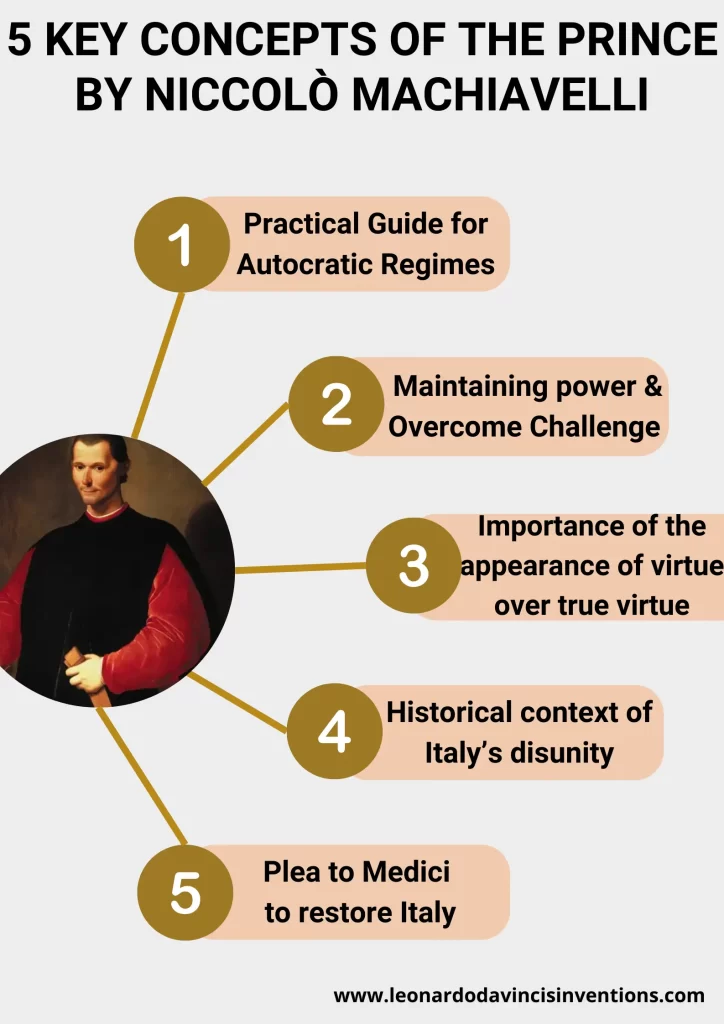
Early Life and Education
Niccolò Machiavelli, a key figure of the Italian Renaissance, was born into a period of political uncertainty. His early years were shaped by his family’s social status and his education, which in turn influenced his later work as a statesman and philosopher.
Birth and Parentage
Niccolò Machiavelli was born in Florence, Italy, on May 3, 1469.
He was born to Bernardo di Niccolò Machiavelli, a lawyer, and his wife, Bartolomeo di Stefano Nelli.
Though his family was part of the minor nobility, they were not wealthy. The Machiavelli family had a history of civic duty, which likely impressed Niccolò with a sense of public service.
Bernardo’s interest in education ensured that Niccolò had access to a variety of texts and learning materials.
Formative Years
During his formative years, Machiavelli grew up in Florence, rich in political activity and cultural vibrancy.
It is believed that he worked for a Florentine banker from 1487 to 1495, which introduced him to the city’s political and financial matters.
Thanks to his father’s dedication, his family’s modest financial state did not hinder his educational opportunities.
This period laid the groundwork for his understanding of political affairs, ultimately leading him to write influential works, such as The Prince.
Classical Education
Niccolò Machiavelli’s education began at age seven.
He studied grammar, rhetoric, and Latin, a standard for a boy from a professional family in Renaissance Florence.
These subjects were foundational for understanding classical texts, profoundly influencing Machiavelli’s writing and ideas.
A deep love for books characterized his childhood, laying the groundwork for his future as a pivotal figure in the field of political philosophy.
Niccolò’s education resonated throughout his works, including insights into human nature and governance in The Prince.
Entry Into Politics
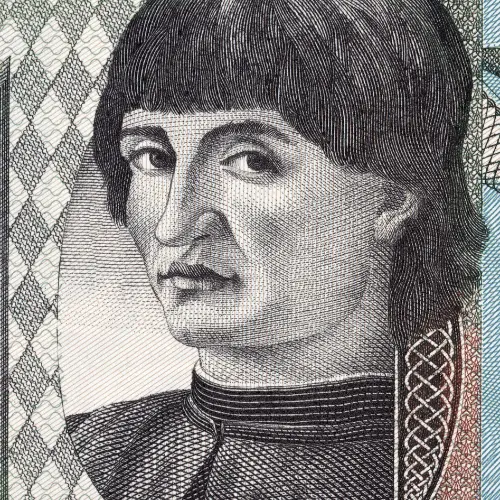
Niccolò Machiavelli began his political career in Florence, gaining firsthand experience in governance and diplomacy. His roles and missions influenced his later writings, especially The Prince.
Initial Roles and Responsibilities
Machiavelli entered the service of the Florentine Republic in 1498.
He was appointed Secretary to the Second Chancery, where he dealt with diplomatic missions and military affairs.
This position enabled him to interact with influential leaders and gain insight into political strategies.
His responsibilities included organizing correspondence, recording proceedings, and applying his insights to statecraft.
During this period, Machiavelli developed foundational ideas that later appeared in his works, such as in the Machiavelli book “The Prince.”
His work prepared him to manage foreign relations and understand power dynamics within different regimes.
Diplomatic Missions and Observations
His diplomatic career involved several critical European missions, mainly to France and the Papal States.
Engaging with foreign courts, Machiavelli observed the interplay of power, alliances, and realpolitik.
These missions shaped his views on leadership and strategy, emphasizing the necessity of adaptability and shrewdness.
His time in diplomatic circles provided valuable insights into political maneuvering, which contributed to his understanding of Machiavelli’s philosophy.
He learned about the importance of maintaining power and control, themes central to “The Prince.”
His observations laid the groundwork for his reputation as a realist in political theory.
The Prince
Niccolò Machiavelli’s The Prince explores the complexities of political power. It is both a guide for rulers and a reflection of the political environment of the time. This work remains influential in understanding political maneuvers and strategic rulership.
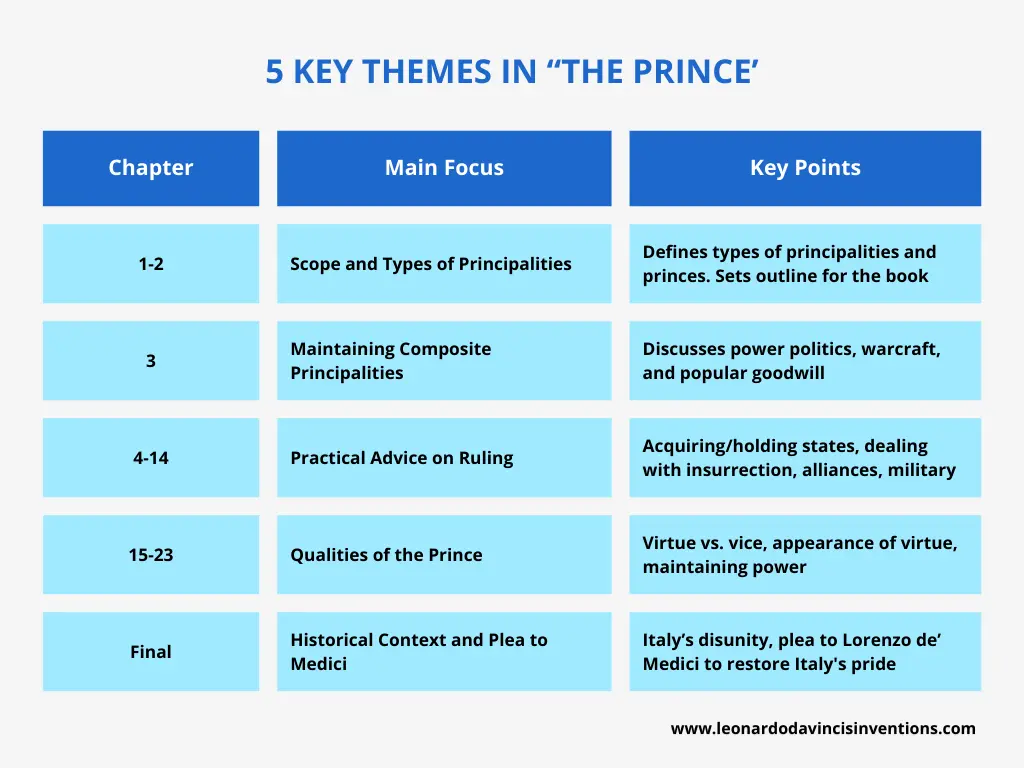
Context of Writing
Niccolò Machiavelli wrote The Prince in 1513, during a tumultuous period in Florence’s history.
This was after the Medici family regained power, and he had been ousted from his governmental position.
He aimed to offer a pragmatic guide for new rulers to master the art of governance.
Machiavelli blended his diplomatic experiences with historical insights to create this manual, intending it to be practical rather than moralistic.
The work was published posthumously in 1532, further cementing Machiavelli’s legacy as a pioneering political thinker.
Major Themes and Theories
Machiavelli’s The Prince presents several key themes, notably the acquisition and maintenance of power.
It emphasizes the idea that the ends justify the means in political contexts.
The text advocates for employing cunning, strategy, and sometimes deception to achieve political objectives.
Machiavelli’s belief that a ruler might have to sacrifice personal morality for the sake of statecraft underpins his work.
This pragmatic approach is encapsulated in Machiavelli’s definition, often associated with political manipulation.
The emphasis on realpolitik and a ruler’s need to be loved and feared remains influential in political thought.
Impact and Controversies
The impact of The Prince on political theory is profound and far-reaching.
It introduced the concept of Machiavellian politics, often linked with cunning and ruthless tactics.
While admired for its candid exploration of power, the book also sparked controversy for its perceived endorsement of unethical behavior.
Critics have debated whether Machiavelli genuinely supported the views outlined or if he presented them as a cautionary observation.
Regardless of the stance on its ethics, the text remains a staple in discourse about leadership and power dynamics.
Its examination of politics’ darker aspects continues to provoke thought and discussion.
Other Political Works
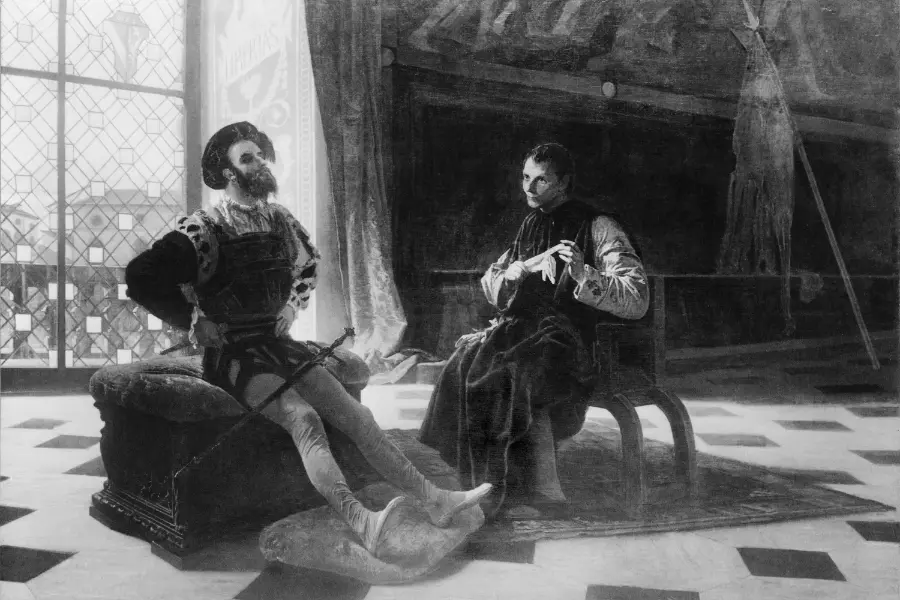
Niccolò Machiavelli’s influence extends beyond “The Prince.” He made significant contributions to political literature with works such as “Discourses on Livy” and “Florentine Histories.” His diplomatic writings also offer valuable insights into his political thought.
Discourses on Livy
“Discourses on Livy” is another major contribution by Niccolò Machiavelli.
Written between 1512 and 1517, this work explores the history and structure of the Roman Republic.
Machiavelli uses the text to discuss ideas on republicanism and civic virtue.
It contrasts with “The Prince” by advocating for collective governance.
He argues that a republic can ensure stability and prosperity through active citizen participation.
The text critiques contemporary governance, aiming to inspire reforms.
Through historical examples, Machiavelli emphasizes the importance of military strength and civic engagement in sustaining a free state.
Florentine Histories
The “Florentine Histories” is a lesser-known yet important work.
Commissioned by Cardinal Giulio de’ Medici in 1520, it offers a detailed account of Florence’s history.
Machiavelli examines the intricate political and social dynamics within the city.
He presents a narrative that combines historical analysis with his observations.
The work highlights the importance of unity and effective leadership in maintaining a prosperous city-state.
Through this text, Machiavelli provides valuable insights into the political landscape of Renaissance Italy.
It also illustrates his belief in pragmatic governance.
Diplomatic Dispatches and Correspondence
Machiavelli’s diplomatic dispatches reveal his practical approach to politics.
As a diplomat for Florence, he engaged in numerous missions between 1498 and 1512.
These writings provide a unique insight into the complex political dynamics of the Renaissance in Europe.
Machiavelli reported on military strategies, international relations, and the intricacies of power play.
His correspondence reflects his keen understanding of human behavior and statecraft.
Readers can trace his development as a thinker and strategist through these documents.
They illustrate how his experiences influenced his later works, including “The Prince.”
These dispatches are valuable for understanding Machiavelli’s political philosophy and impact on modern political thought.
Later Career and Retirement
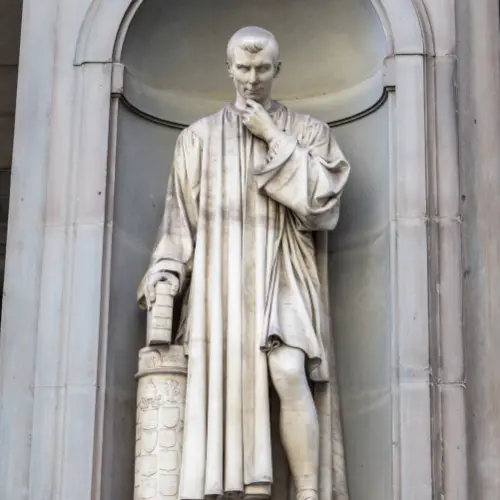
Niccolò Machiavelli faced numerous challenges in his later life, including a decline in political favor, which led him to redirect his efforts into writing. His writings during this period have become some of his most enduring works. Financial difficulties also marked his personal life after retiring from public service.
Fall from Political Favor
Machiavelli’s political career declined after the Medici family overthrew the Republic of Florence in 1512.
This change in power left him without a position in the government.
Accused of conspiracy against the Medici, he was imprisoned and tortured briefly but released due to lack of evidence.
After his release, the ruling Medici did not trust him. As a result, Niccolò Machiavelli was forced to retire from public life.
This situation prompted him to focus on his writing projects, including his famous book, “The Prince,” which aimed to advise rulers on power dynamics.
Later Writings
During his retirement, Machiavelli produced several influential texts.
While not immediately famous, “The Prince” has become a cornerstone of political philosophy. This work examines power and the qualities of a successful ruler.
Alongside “The Prince,” he wrote the “Discourses on Livy,” offering his thoughts on republican governance.
These writings display Machiavelli’s deep understanding of politics and human nature.
His literature during this period remains significant in political thought, underlining his adaptability and insight.
Personal Life and Finances
In retirement, Machiavelli faced financial struggles.
His family’s remaining wealth was modest, and he had little income.
Despite these challenges, he continued to write and engage with intellectual circles in Florence.
Machiavelli enjoyed corresponding with friends and engaging in intellectual discussions. This interaction provided a sense of purpose beyond his financial woes.
Although financially strained, his dedication to his work and philosophical pursuits persisted until he died in 1527.
Philosophical and Cultural Legacy
Niccolò Machiavelli left a lasting mark on political thought and culture. His realistic approach to power and governance laid the groundwork for modern political theory. He also introduced the term Machiavellianism. His influence is evident in contemporary political strategies and popular culture.
Influence on Political Philosophy
Machiavelli’s impact on political philosophy is profound. He is best known for his work The Prince, which offers pragmatic advice on power and leadership.
Unlike earlier thinkers like Aristotle, Machiavelli suggested that rulers prioritize stability and authority, even if it means using deceit or cruelty.
His ideas sparked debates about ethics in politics. Is it better to be feared or loved as a leader?
Machiavelli popularized this question, which continues to challenge political leaders and scholars alike. His influence on political philosophy is undeniable, and his works are frequently cited in academic studies of politics.
Machiavellianism
Machiavellianism has come to describe a personality trait or behavior characterized by cunning, manipulation, and a focus on self-interest. It stems from the strategies outlined by Machiavelli in his writings. This term is widely used in psychology and business to describe individuals who use deceit and manipulation to achieve goals.
The concept has also influenced corporate and diplomatic strategies, encouraging leaders to adopt a realistic, sometimes ruthless, approach. While some criticize these tactics, others argue they are necessary in a complex world. The Machiavellian approach remains relevant in discussions about power dynamics and ethical leadership.
References in Modern Culture
Niccolò Machiavelli’s legacy extends beyond philosophy to modern culture. His influence is evident in literature, film, and music. The term “Machiavelli” frequently appears in works exploring themes of power and betrayal.
Rappers like Tupac Shakur adopted the nickname “Makaveli,” showing Machiavelli’s reach in pop culture. Movies and TV shows often feature Machiavellian characters, highlighting their cunning and strategic skills. These references keep Machiavelli’s ideas alive, proving that his insights into human nature and politics remain relevant today.
Death and Posthumous Recognition
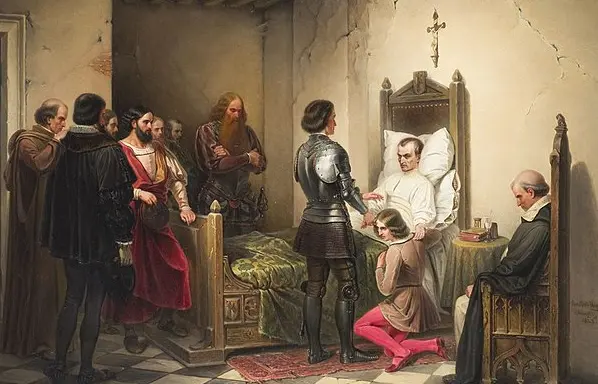
Niccolò Machiavelli’s influence as a political philosopher indeed soared after his death. His works, especially The Prince, significantly influenced the discourse on political reality and strategy, establishing him as a pivotal figure in modern political philosophy.
Final Years
In the years following his death, Niccolò Machiavelli returned to his family estate in Sant’Andrea, Percussina, near Florence. His political career suffered setbacks when the Medici family returned to power, and he lost his diplomatic position.
During this time, Machiavelli devoted himself to writing and produced some of his most influential works, including The Prince. These final years were marked by personal and political reflection, which led to profound insights into the dynamics of power and human nature.
On June 21, 1527, Machiavelli died in Florence. Despite his death, his thoughts on power and governance continue to resonate, influencing thinkers and leaders across generations.
Legacy and Memorials
Machiavelli’s legacy is rooted in his revolutionary ideas about politics and power. His book, The Prince, has become a cornerstone of political theory, offering timeless lessons on leadership and governance.
Many consider Machiavelli the father of modern political philosophy because of his candid assessments of power. His works, particularly The Prince, highlight the often brutal realities of political life, making them essential reading for anyone studying politics.
Machiavelli’s influence endures in modern times, as his ideas are examined in various academic and political contexts. Monuments in Florence commemorate his contributions, and scholars continue to discuss the profound impact of his writings, solidifying his status as a seminal figure in world history.
Historiographical Debates
Niccolò Machiavelli’s works have sparked wide-ranging debates among historians and scholars, with different interpretations and views shaping his legacy and influencing how he is perceived in political and historical contexts.
Interpretations of ‘The Prince’
Machiavelli’s most famous work, The Prince, has been interpreted in many ways. Some view it as a straightforward guide for rulers, while others see it as a satirical piece critiquing power politics.
The book is known for the phrase “the ends justify the means,” suggesting that rulers sometimes use deception to maintain power.
This concept has led to debates about whether Machiavelli was endorsing ruthless tactics or merely describing the realities of political life at the time.
Machiavelli’s Reputation
Various interpretations of his work have shaped Machiavelli’s reputation. He is often associated with cunning and unscrupulous political maneuvers.
Despite his reputation, some scholars argue that he was more of a realist than a cynic. They claim Machiavelli’s goal was to show how politics functioned rather than endorse unethical behavior.
As a former diplomat and bureaucrat, he had firsthand experience with the complexities of power. His reputation as a “Machiavellian” is similarly complex, encompassing negative and positive perceptions.
Final Thoughts
Niccolò Machiavelli has left a lasting legacy in the field of political philosophy. His pragmatic ideas, particularly in “The Prince,” challenge conventional notions of morality in governance.
He argued that leaders must be cunning and strategic to maintain their power. Machiavelli’s insights are not limited to politics; his teachings can be applied to various areas of life, emphasizing the importance of adaptability and foresight.
Many leaders, even today, find value in his perspectives on power dynamics.
Key Takeaways: Machiavelli’s work encourages critical thinking about leadership and ethics. These lessons remain relevant and continue to influence modern political thought.
Niccolò Machiavelli offers rich material for exploring power and leadership, showing the complexity of human interactions in political contexts.
Frequently Asked Questions
Niccolò Machiavelli was a pivotal figure in the development of political thought. His ideas on power and governance continue to spark discussion and debate to this day.
Machiavelli is best known for his book The Prince, which provides advice on political leadership and the use of power. This work explores the effectiveness of pragmatic and, at times, ruthless political strategies. It’s often associated with the idea that the ends justify the means.
Machiavelli’s theory is rooted in political realism. He believed rulers must be pragmatic and willing to act immorally when necessary to maintain power and protect the state. This perspective diverged from previous idealistic political philosophies.
Machiavelli is controversial because he is perceived as endorsing deceit and political manipulation. His ideas challenge traditional ethical values by suggesting that immoral actions can be justified if they achieve necessary outcomes, making him a provocative figure in the field of political theory.
One of Machiavelli’s most famous quotes is, ‘ It is better to be feared than loved, if you cannot be both. ‘u0022 This statement reflects his belief in the importance of power and control in governance.
Tupac Shakur adopted the name Makaveli as a nod to Machiavelli. During his time in prison, he was influenced by Machiavelli’s thoughts on politics and strategy. The alias symbolizes a deeper exploration of the themes of power and betrayal.
When the Medici family regained power, Machiavelli was exiled from Florence after falling out of favor with the new rulers. His association with the former republican government led to his arrest and eventual banishment in 1512. During this time, he wrote many of his important works.
Machiavelli remains popular due to his novel and relevant ideas on power. His realistic approach to leadership has influenced political leaders and theorists, and his works continue to prompt ongoing dialogue about ethics and morality in governance.
Machiavelli is often referred to as the u0022child of his ageu0022 because his work reflects the political upheavals of Renaissance Italy. The turbulent political landscapes of cities like Florence significantly shaped his insights, which in turn profoundly influenced his thoughts on power and statecraft.
Machiavelli taught that successful rulers must adapt to changing circumstances and, if necessary, use unscrupulous tactics. He also emphasized the importance of understanding power dynamics and suggested that effective leadership sometimes requires moral flexibility.
The term u0022Machiavellianu0022 often has a negative connotation. It implies cunning and deceit in pursuit of goals. While some view this approach as unethical, others see it as a realistic acknowledgment of political complexities. Whether seen as good or bad largely depends on individual perspectives on morality and power.



 Leonardo Bianchi,
the creator of Leonardo da Vinci's Inventions.
Thank you for visiting
Leonardo Bianchi,
the creator of Leonardo da Vinci's Inventions.
Thank you for visiting